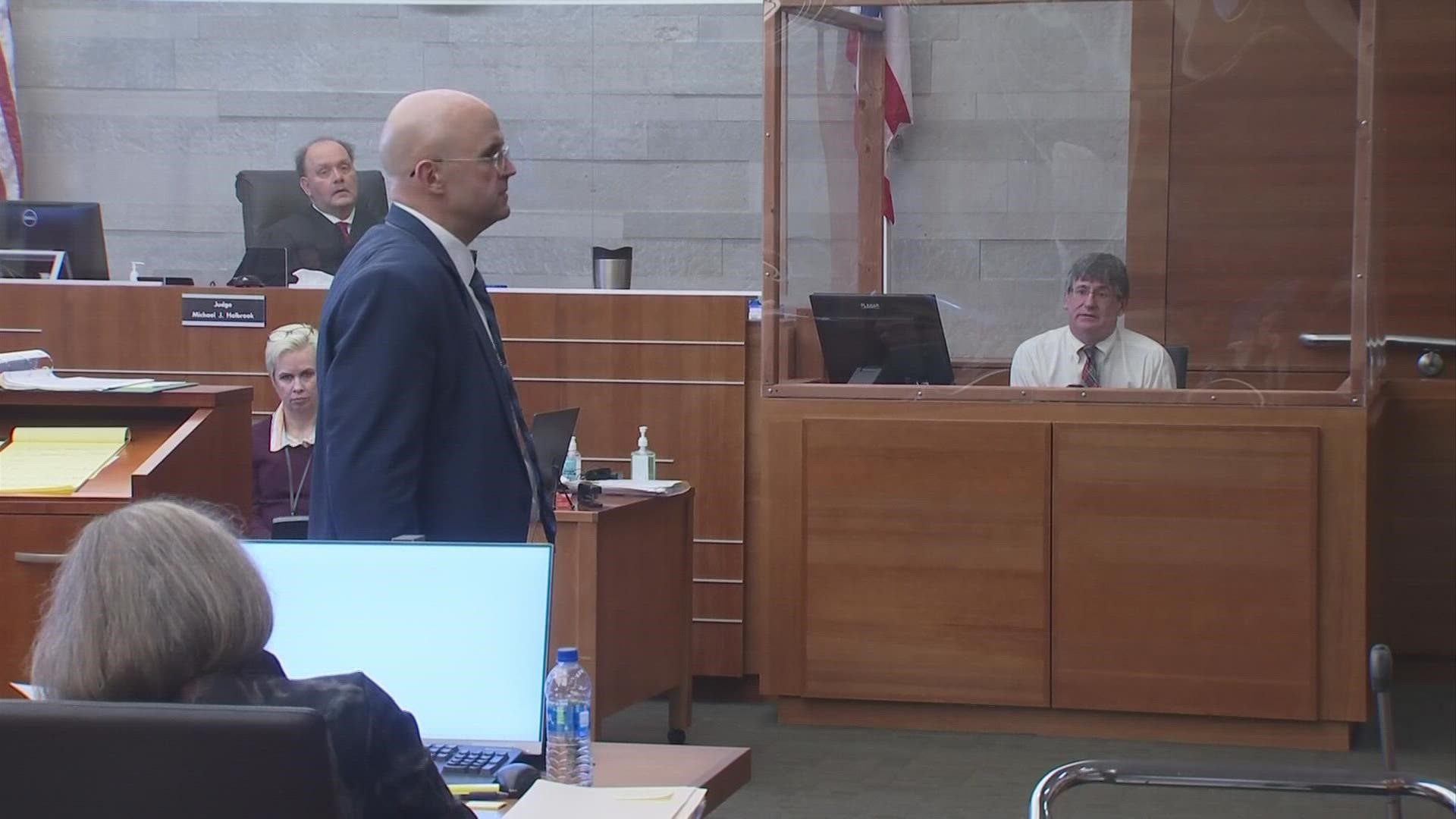COLUMBUS, Ohio — Attorneys for former Mount Carmel doctor William Husel continued to raise objections again Monday over whether testimony from two physicians leaned too heavily on privileged information from Mount Carmel Health System.
The information centers around how Husel was the only doctor in Mount Carmel’s intensive care unit who used large doses of fentanyl when removing patients’ breathing tubes.
At issue is testimony from Dr. Larry Swanner, a former Mount Carmel administrator, and Dr. Dan Roth with Trinity Health, Mount Carmel’s parent company. Both men testified last week that internal review found Husel was the only critical care doctor in Mount Carmel’s intensive care unit who used 500 micrograms of fentanyl or more when removing the breathing tubes from critically ill or dying patients.
Husel is accused of killing 14 of his patients through overprescribing fentanyl in combination with other drugs like Versed – which witnesses have testified can have a “synergistic” effect – increasing the risk of respiratory depression.
A central question in the case includes: were the dosages so large that they accelerated the deaths of patients? Prosecutors say yes. Husel’s defense team claims the patients died as a result of being taken off life support.
Husel has pleaded not guilty. His attorneys have said while his orders were “aggressive,” he was providing comfort care and intended to prevent his patients from suffering.
“This is the mess they created. Not only with one witness but with two witnesses … and we’ve been dancing and tip-toeing around the tulips the whole time with these report issues,” Husel’s attorney Jose Baez said Monday before testimony resumed.
Prosecutors said they didn’t “sneak in” anything and told the defense team what they were planning to ask these doctors.
While state law protects “peer reviewed’ or privileged information from being admitted in civil cases, Judge Michael Holbrook ruled Friday that attorneys for both sides should no longer try to elicit testimony from witnesses that relies on confidential records from the hospital. Dr. Swanner could be recalled to testify how he learned Husel was the sole doctor using large doses of fentanyl in the ICU when performing palliative extubations.
Dr. Dan Roth was back on the stand Monday where Baez questioned about the hospital’s response and the crafting of an internal document that pained Husel and others – including nurses and pharmacists – as “villains.” Roth acknowledged the existence of the draft, saying it came from an outside communications consultant, but was ultimately never used or made public.
Roth also acknowledged that hospitals in America had faced scrutiny and threats of loss of funding for failing to adequately monitor the use of controlled substances.
He also testified he had hired a criminal defense attorney.
That exchange led prosecutor David Zeyen on re-direct to ask Dr. Roth if he had told police or prosecutors to frame Husel for murder? Roth said: “I did not.”
That drew an objection from Baez who said his questions never referenced anyone framing Husel for murder.
Later in the afternoon, Dr. David Ralston, the Mount Carmel ICU director, said he never used fentanyl when performing a breathing tube from a palliative patient and never used more than 5 or 6 milligrams of morphine, which when converting the amount - would be no more than 50 or 60 micrograms of fentanyl.
Ralston also testified during cross-examination that he didn’t want to judge Husel’s medication orders because he wasn’t at the bedside when the patients were removed from life support.

